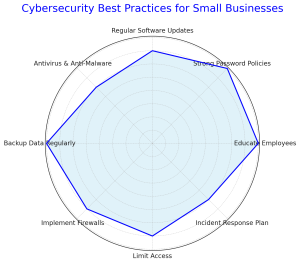If you’re a business looking to increase visibility and attract customers in your area, mastering Local SEO is the key to dominating your local market. Unlike traditional SEO, Local SEO focuses on optimizing your online presence for geographically related searches. Whether you’re a law firm in Nairobi, a hardware store in Kisumu, or a salon in Mombasa, these Local SEO tips will help your business show up in search results when it matters most.
1. Claim and Optimize Your Google Business Profile
Your Google Business Profile (GBP) is the foundation of your local SEO strategy. It’s what shows up in the Google Map Pack and on the right-hand side of search results.
How to Optimize:
- Claim and verify your listing at Google Business
- Add accurate NAP (Name, Address, Phone Number)
- Include business hours, services, and categories
- Upload high-quality images of your business
- Regularly post updates, offers, and events
2. Use Local Keywords
Incorporate location-based keywords throughout your website and content. This helps Google understand where your business operates.
Tips:
- Use city and neighborhood names in titles, meta descriptions, and H1 tags
- Create landing pages for different locations you serve
- Add location-specific content to your blog
🔍 Example: Instead of “best barbershop,” try “best barbershop in Westlands Nairobi.”
3. Get Reviews and Respond to Them
Online reviews build trust and influence local rankings. Encourage satisfied customers to leave positive reviews on your Google Business Profile and other platforms like Facebook and Yelp.
Pro Tips:
- Ask customers in person or via SMS/email after service
- Always respond to reviews — positive or negative
- Address concerns politely and professionally
4. Ensure Consistent NAP Across Directories
Your business name, address, and phone number (NAP) must be consistent across all online platforms, including your website, social media, and online directories.
Where to List:
- Bing Places
- Yelp
- Yellow Pages Kenya
- Facebook, LinkedIn, Twitter bios
Inconsistencies confuse search engines and hurt your local rankings.
5. Leverage Local Backlinks
Backlinks from reputable local sources signal to Google that your business is trusted in your area.
How to Get Them:
- Collaborate with local bloggers, newspapers, or chambers of commerce
- Sponsor community events and ask for a link back
- List your business on local directories
🔗 Learn more about link-building strategies on Moz.
6. Optimize for Mobile Users
Most local searches happen on mobile devices. If your site isn’t mobile-friendly, you’re missing out on traffic and potential customers.
Tips:
- Use responsive design
- Optimize loading speed with tools like Google PageSpeed Insights
- Ensure buttons and links are easy to tap
7. Create Localized Content
Start a blog or video series focused on local news, events, or customer stories related to your niche. This not only improves SEO but also builds community trust.
Examples:
- “Top 5 Interior Design Trends in Nairobi Homes”
- “How Our Eldoret Bakery Supports Local Farmers”
- “Customer Story: Choosing a Water Tank in Kisii”
8. Use Schema Markup for Local Businesses
Structured data helps search engines better understand your content. Use LocalBusiness schema to improve your chances of appearing in rich snippets.
🔧 Learn how to implement it at Schema.org or with tools like RankMath or Yoast SEO.
Final Thoughts
Local SEO is one of the most effective digital marketing strategies for small and medium businesses. By optimizing your Google Business Profile, gathering reviews, using local keywords, and building local backlinks, you can dominate your local market and appear in front of customers who are ready to buy.
🔗 Need help with Local SEO in Kenya? Contact Mamba Technologies for expert strategies tailored to your location and industry.
![Web Design Agency [Top-Rated Company]](https://www.mambatechnologies.com/wp-content/uploads/2025/03/cropped-Untitled_design__6_-removebg-preview.png)




